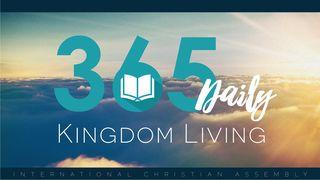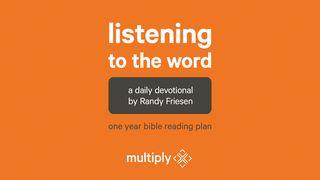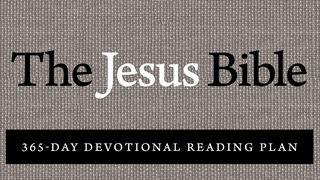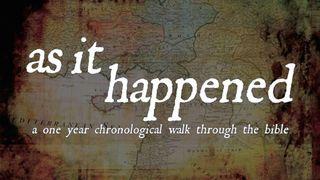Plan Info
For The Love Of GodSample

ISAIAH HIMSELF IS GOD’S SERVANT (Isa. 20:3), and so is Hezekiah’s chief steward Eliakim (Isa. 22:20). Israel collectively is God’s servant (Isa. 41:8-20). Who is the servant of the Lord in Isaiah 42:1-9?
Some argue that it is still Israel. In that case, God’s words, “Here is my servant” (Isa. 42:1) are uttered before the nations, a kind of defense of his people before the mighty powers that are nothing to him. But this reading of Isaiah 42 is unlikely. “Here is my servant” sounds like the introduction of a new figure. More importantly, God’s servant Israel was described in the preceding chapters as complaining (Isa. 40:27), fearful, and dismayed (Isa. 41:10). By the end of this chapter, God’s servant Israel is deaf, blind (Isa. 42:18-19), and sinful (Isa. 42:23-24). By contrast, the servant of the Lord in Isaiah 42:1-9 neither falters nor is discouraged (Isa. 42:4), delights in God (Isa. 42:1), is gentle, persevering, and brings forth justice in faithfulness (Isa. 42:3). This is an ideal Servant, one who embodies all that Israel failed to be. In this light, the announcement “Here is my servant” is made to Israel. The Servant is introduced to them not only because he is an ideal to which they should aspire, but because he is an individual who will rescue them, as Isaiah will make clear.
This servant song is divided into three parts. (a) In Isaiah 42:1-4 God addresses Israel and introduces the Servant, who will bring “justice” to the nations. The Hebrew term includes more than the English word. It embraces putting into effect all of God’s purposes. But when the Servant does this, he is quite unlike Cyrus or some other imperial leader. He is gentle: he does not shout or cry out or raise his voice in the streets (Isa. 42:2). He neither breaks the bruised reed nor snuffs the smoldering wick (Isa. 42:3)—a passage explicitly applied to Jesus in Matthew 12:15-21. (b) In Isaiah 42:5-7, the Servant himself is addressed (note v. 6: “I the LORD, have called you [sing.] in righteousness”), and Israel is allowed to overhear what is said. Here the God who gives breath to all people (Isa. 42:5) now makes this Servant “to be a covenant for the people and a light for the Gentiles” (Isa. 42:6), undoing all the degrading effects of sin (Isa. 42:7). (c) In Isaiah 42:8-9, the Lord again addresses Israel, once again summarizing the mission of the ideal Servant and insisting that these are “new things” graciously announced in advance.
Small wonder that this song issues in profound praise to the Lord (Isa. 42:10-17), and contrasts once again the depth of the moral culpability of God’s servant Israel (Isa. 42:18-25) which only the ideal Servant can resolve.
About this Plan

A daily devotional for discovering the riches of God's word: For the Love of God is a daily devotional designed to walk a person through the Bible in a year while assisting the reader in discovering the riches of God's W...
More
We would like to thank The Gospel Coalition for providing this plan. For more information, please visit: thegospelcoalition.org









